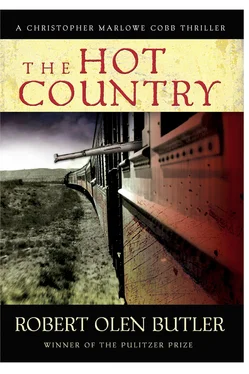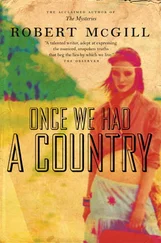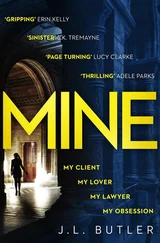And I said, “ Jefe, may I take this off once again? I would like to give you the sombrero of your dead enemy.”
He straightened sharply. His face went blank. I was afraid I’d made some sort of mysterious, terrible mistake. But his eyes filled with tears yet again. He was waiting.
I lifted my hands and removed the sombrero and I held it between us.
He took it and he turned it and he lifted it to his head, quite slowly — given the speed at which he was living, quite slowly — as an improvised ritual between us. And he put it on. “ Viva Mexico, ” I said.
“ Viva Mexico, ” he said.
Pancho Villa sat us down on the horsehair cushions and he went to the far end of the caboose and returned with four unlabeled bottles. We each took one and he sat in his swivel chair. “One plant,” he said, “grows fifteen years to make one bottle.” He did not say its name but it was sotol in our hands, nearly clear, perhaps with a little tinge of yellow. Neither did he draw, from his observation, any lessons about lives or wars or revolutions or governments. We simply lifted our bottles to each other and we drank and it went down smooth and dangerous and it tasted like a field of something green that had been burned to the ground but still tasted green and also tasted like smoke.
And Villa listened intently to the details of the train raid and the fight at the hacienda . He wore the sombrero I gave him. The German on the train, the man Villa expected me to be, wasn’t mentioned again. And when Slim and Hernando finished speaking, Villa did not comment on any of this, but his eyes, which had grown still and grave, suddenly became animated again and he spoke of the afternoon cockfight and how he lost much money on his best bird, who, bespurred and seasoned though he was, showing the scars of a dozen other successful fights, suddenly spread his wings and managed to fly over the heads of the tight ring of spectators and make a break for freedom in the desert. Villa, though he was tempted to wring the bird’s neck for betraying him, took compassion on him and let him go.
Just as I’d been told that Pancho Villa drew on no book knowledge whatsoever, no theory, that his military and political acumen was totally based on instinct, I sensed, in his conversation, that there was no metaphor in him either. All that he said simply was what it was. He moved from one moment of the body to another. One intense engagement to another. One fight, one death, one drink at a time.
He looked at me now and said, “Though you are a brave man who has done me good and who has made my enemies your enemies, I do not think this is why you are sitting here now. You have not enlisted to be a Villista, I do not think. And you were not kidnapped by Tallahassee Slim and Hernando Soto.”
“I want to write a story,” I said.
I waited.
He waited. Then he prompted. “About Pancho Villa?” he asked.
“About what is happening now in your country,” I said.
He smiled. This was the right answer. Then the smile was gone. “About what is happening in your country, as well,” he said.
“Yes. That’s why I have traveled here at great risk from the Federales and why, along the way, I have come to fight at the side of these two good men.”
“I have often taken a train car of newspapermen to my battles,” he said.
I found myself about to say that the people of the United States knew him well for that, even about to say how they admired him. I sensed he could be flattered. I sensed he’d be happy for a sympathetic ear. But I also sensed he was attuned to bunk, and I was feeling also that I was full of that, that I was becoming a goddam bunco artist. Killing some enemies of Pancho Villa in such a way as to win his trust, making a sentimental show of giving him the colorado ’s sombrero: All this, too, felt like consummate bunk. It would have been better just to walk out in the middle of a field of fire in a pitched battle and put my Corona Model 3 on a tripod and write the feel of the bullets zinging past my ears. That would have been better than this. But this was what the world had come to. This was the role I was cast in. There was another kind of story in another kind of time that I needed to write. Nevertheless, I bit my tongue about all the admiration people would have if he talked to me. I just nodded at his invoking the train cars full of newsmen.
I lifted my bottle of sotol to him. He lifted his. Slim and Hernando lifted theirs. We drank.
“So,” I said to Villa, “I’m just curious. Who is this German I’m supposed to be?”
“A formidable man,” Villa said. “Like yourself.”
“A formidable journalist?”
Villa laughed. “I forgive that in you, because of your skills as a fighter.”
“He is a military man?”
“I am to learn more about him when he arrives. But I understand he is a fighter. It is on his face, I am told.”
“He is a man who joins you to fight, like Tallahassee Slim,” I said, as if I understood.
“No. He is a man officially representing his government,” Villa said.
I had the feeling that a good reporter cultivates: You’ve pushed as far as you can for now.
I drank my sotol, making a show of being content with his answer. But my keeping silent did prompt Villa to say one more thing: “Germany is a good friend to the Mexican people.”
As there was no metaphor in Villa, neither did I detect irony or indirection. I didn’t feel as if he’d said this in order to say an unspoken thing. In this case: a friend, unlike the United States of America, who has invaded Mexico. But even if he was not trying to say this, even if he was simply speaking his feelings and thoughts of this very moment, that conclusion — not only was Germany his friend, but America was his enemy — was one he could readily come to in a future present moment.
Neither did I break my silence to say: I would not like to share a border with Germany.
I realized I knew nothing of actual military importance to Pancho Villa, so I could make an engaging offer now without worrying about consequences. I said, “I was in Vera Cruz to cover the events. I left only a few days ago. Is there anything you’d like to know about the situation there?”
There was a slight recoil of surprise in Villa. He smiled. He had bad teeth, small and separated and the color of old coffee on a porcelain cup. “I can ask a question of a man whose job it is to ask questions?”
“I’ve killed for you,” I said, ready once more to dole out bunk. It would be useful for me to know what questions this man had on his mind. “The least I can do is answer some questions,” I said.
Without a hesitation Villa asked, “Where will your army attack next?”
“Rats and garbage in the streets,” I said.
That sense of his face collapsing toward the center happened again. His thoughtful mood. Or confused. I explained: “I’m saying they’re going nowhere and are happy now simply to bring their ideas about sanitation to Vera Cruz. Our President is staying put and trying to look humane.”
Villa’s face relaxed. “What wars is he fighting inside the country?”
“The country?” I asked. I assumed he meant Mexico, but I thought I just answered that.
“America,” Villa said. “Which are his rebel states?”
He was serious.
“None,” I said, trying hard to keep any tone out of my voice that smacked of astonishment, as if he was somehow ignorant.
“None?” Villa asked in exactly the tone I just suppressed.
“We’ve not had rebel states for nearly fifty years.”
Villa shook his head in wonder. “How do you pass the time?” he asked. And I was almost certain he was still serious.
Читать дальше












